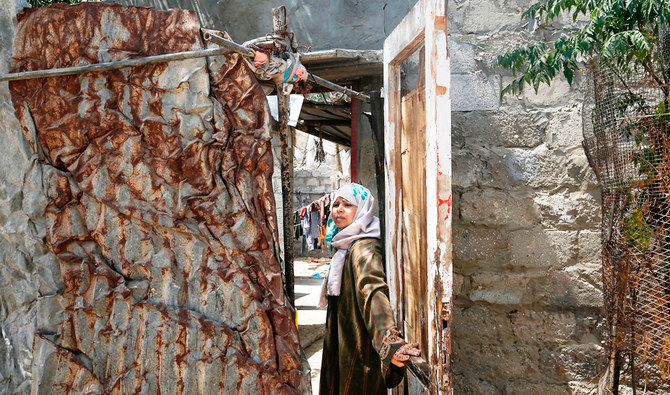
- ARAB NEWS
- 19 Apr 2024

Hazem Balousha
BEIT LAHIA/GAZA STRIP: Six years have passed since the last bloody war on the Gaza Strip, but Palestinian Saber Abu Nahl is still moving from one house to another after he lost his home to Israeli airstrikes in the northern Al-Nada neighborhood.
Abu Nahl, who works as a taxi driver, was one of hundreds who lost their homes during the conflict.
He dreams of rebuilding his home again.
“The rent fees overwhelmed me and I dream day and night to go back to home,” said Abu Nahl, 43.
The war launched by Israel against Gaza, which lasted from July 8 till Aug. 26, 2014, destroyed 12,000 housing units and partially destroyed 160,000, of which 6,600 were uninhabitable, according to the Ministry of Works and the UN Relief and Works Agency for Palestine Refugees (UNRWA), in cooperation with the UN Development Program.
More than 1,500 housing units are yet to be rebuilt and their owners are homeless, according to the non-governmental organization People’s Committee to Face the Siege.
Abu Nahl, who supports a family of seven, lives in a modest rental home in Jabalia refugee camp in the northern Gaza Strip. The former owner of the house forced him to leave because he could not pay the estimated monthly rent of $117.
Like other homeowners ruined by the war, Abu Nahl was receiving financial aid from the UNRWA as an allowance for the value of rent until they returned to their homes after reconstruction.
However, UNRWA has stopped paying the allowance since 2018. Abu Nahl disagreed with the decision and accused Palestinian forces of breaking promises.
“The UNRWA is lying, the Palestinian factions do not care about us and we are homeless without any horizon,” he said.
“Many days I return to my children with not enough to feed them, so how do I manage their affairs and pay the rent in light of a devastating economic situation?”
Since the 2014 conflict, the Gaza Strip has endured fighting between Hamas and other factions, and Israel.
Nevin Barakat is no better off than Abu Nahl, and despite receiving a new apartment at the beginning of the year, she still feels the painful effects of the war, where she lost her home.
The Al-Nada neighborhood apartment was destroyed, and Barakat, her husband Rami, and her five children took refuge in a school shelter. But an Israeli artillery shell hit the classroom where she was staying, killing her husband and wounding her children.
Although she was happy to move her children to the new apartment, the “ghosts of war” still affect Barakat, who fears another war could displace them again.
“I lost my husband at the age of 37. I want to live in peace and raise my children.” she said.
Osama Drabieh, a member of the destroyed homeowners’ committee in the Al-Nada neighborhood, said: “It is true that most destroyed homes in the neighborhood have been rebuilt, but residents are afraid a new war will bring back the suffering.”
Drabieh, a retired civil servant, returned to his new apartment at the beginning of the year after six long years of separation from his family.
“We have suffered a lot from the burden of destroyed housing and we cannot tolerate any new war that will destroy what has been rebuilt,” he said.
“The impact of the previous war is still visible on our bodies, homes, factories and streets.”
Jamal Al-Khudari, head of the People’s Committee to Face the Siege, said that more than 1,500 housing units have still not been rebuilt after the 2014 war.
More than 500 factories were also severely damaged during the fighting, he said.
“The reality in the Gaza Strip remains difficult, exceptional and tragic,” Al-Khudari said.
Six years after the war, life on the Gaza Strip faces the growing threats of a deteriorating economy, poverty and unprecedented unemployment rates.